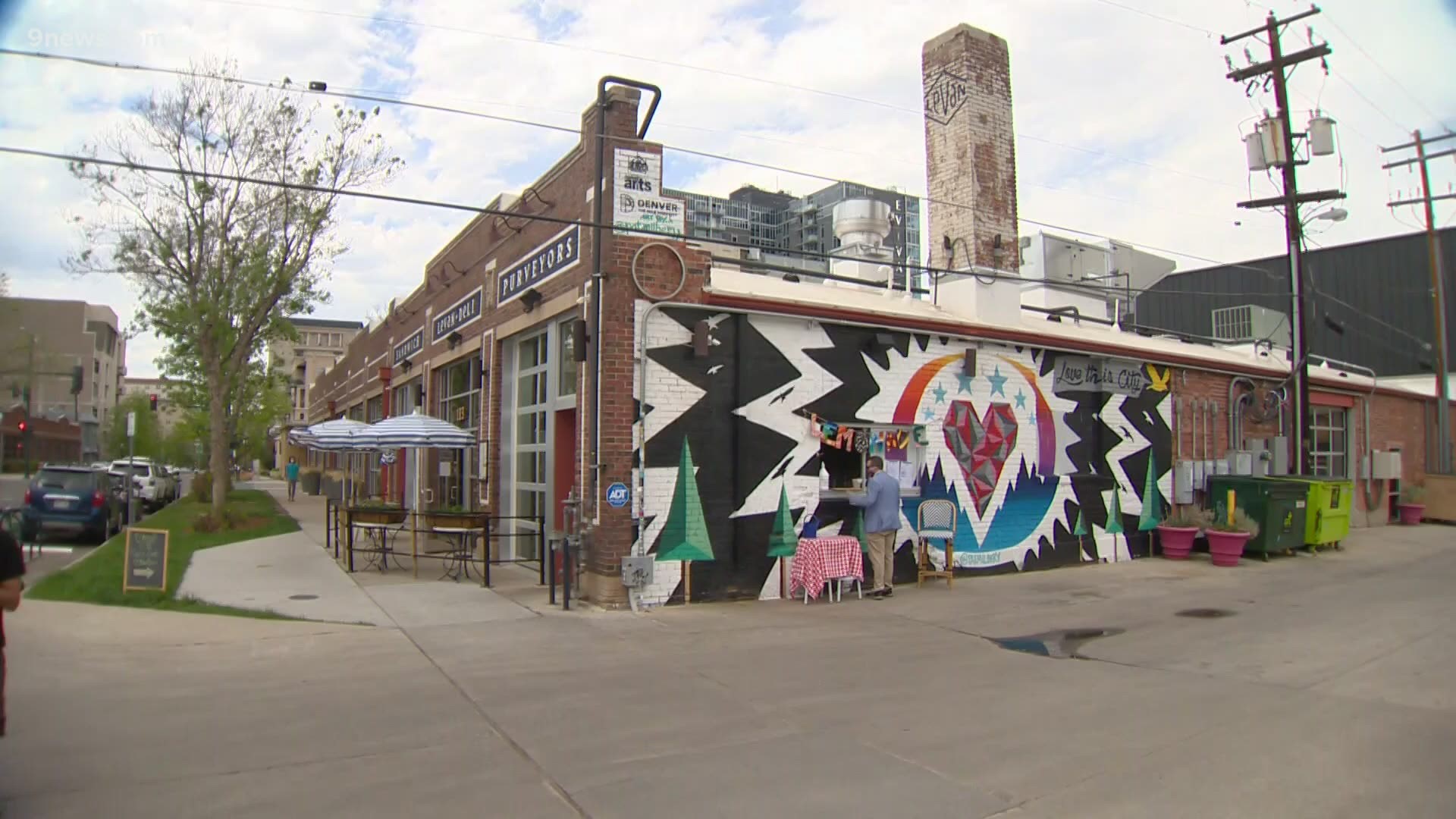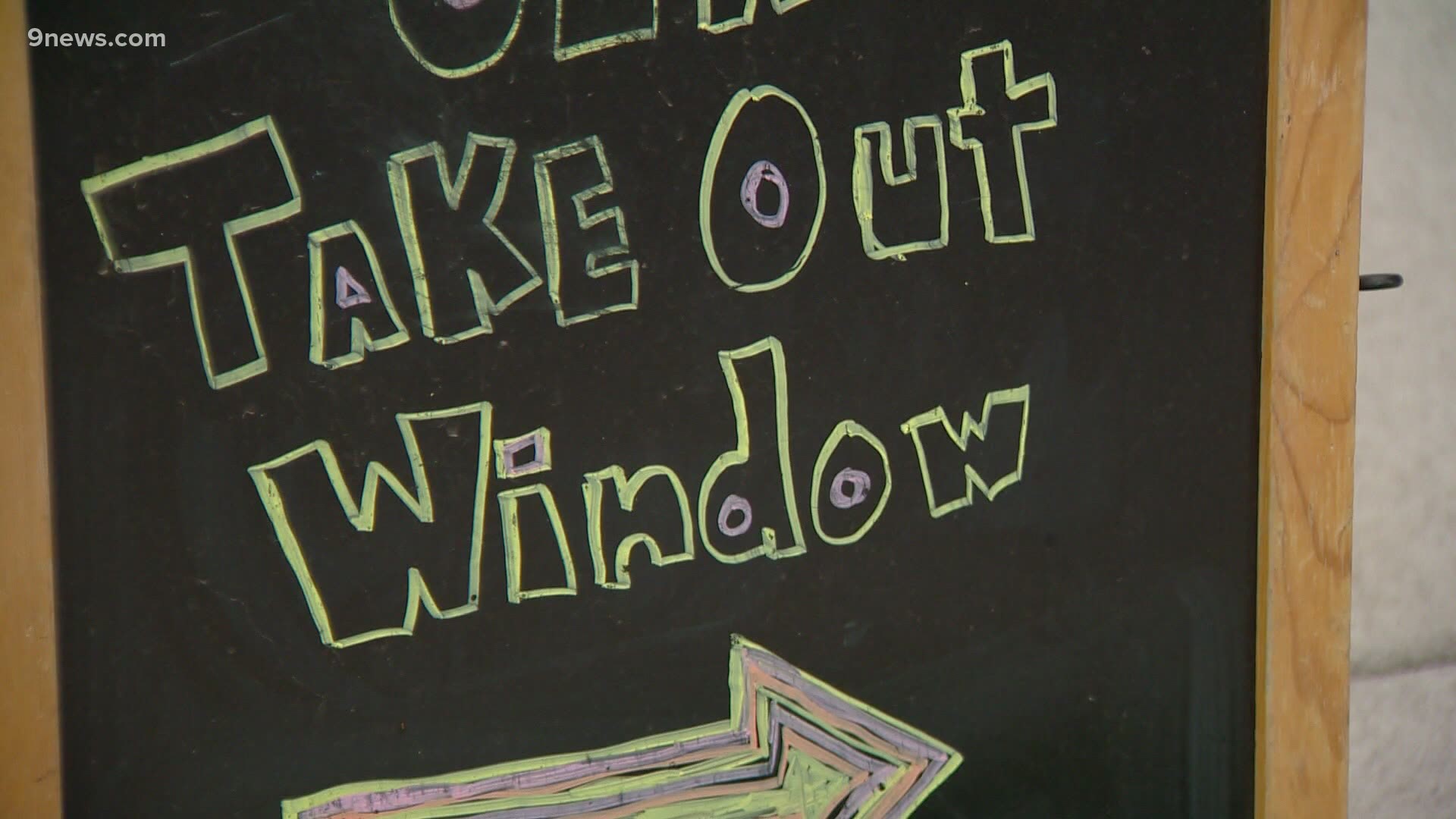DENVER — Especially during the pandemic, while dining rooms are closed and more people are eating at home, local restaurants have come to rely on third-party food delivery companies like Uber Eats, Grubhub and DoorDash to stay in business in Denver.
When you order food through any of these third-party delivery services, you expect to pay extra for delivery. But did you know, those delivery companies are also charging the restaurant additional delivery fees, too?
Fees that have gotten so high, some restaurants are losing money on delivery orders. But the Denver City Council recognized this challenge, and relief may be coming soon.
"Most customers aren't aware that they are paying a fee and tipping the driver, and that the restaurant is also paying a fee. A lot of small restaurants will owe as much as 20, 30 or even 35% on every order, and that is in addition to the customer paying a fee," said Denver City Councilwoman Kendra Black.
As a city councilor for southeast Denver, Black was put on an economic relief and recovery committee for the city months ago called "Back in Business." That's when she started hearing the concerns from locally-owned eateries, the Colorado Restaurant Association and EatDenver, the metro area’s independent restaurant organization.
"I’ve talked to a number of restaurants that say that they actually lose money on these third-party delivery transactions," said Sonia Riggs, the president of the Colorado Restaurant Association. "They do it because they really want to stay in front of their customers and delivery is something that a lot of people do."
In September, Councilwoman Black worked with Riggs and other restaurant owners to propose a bill that would cap those third-party delivery companies from taking any more than 15% per order from restaurants. It passed in city council on Monday.
The bill also bars them from charging additional processing or service fees without showing customers what they are paying for on an itemized receipt. And, it would ban the companies from reducing driver pay to make up for lost commissions.
"That was really important to me and the restaurants and everyone on council that we protect the drivers," Black said. "We don't want them docking the drivers' pay or docking the drivers' tips to help compensate for capping the fee."
Even though the bill passed, these restrictions are temporary. They will last until mid-February, at which time Black says the council and restaurants can revisit the issue.
"The four-month timeline is a good start to see how things go and see what works," Riggs said. "We've committed to being there to come back to the table for any future discussion."
While the third-party delivery companies aren't as enthusiastic, Black has the support of the Denver City Council. It passed unanimously without any further discussion on Monday.
"The companies aren't excited about it," Black said Sunday, the day before city council was set to vote. "But I think they see the writing on the wall. These fees are causing problems, particularly for small local restaurants which are so important to our communities and our neighborhoods and our culture," she said. "We don't want them to close. They are all suffering so much now during COVID and this economic crisis."
The goal, Black says, is to find a balance for everyone until times are less hard.
SUGGESTED VIDEOS: COVID-19 Coronavirus


